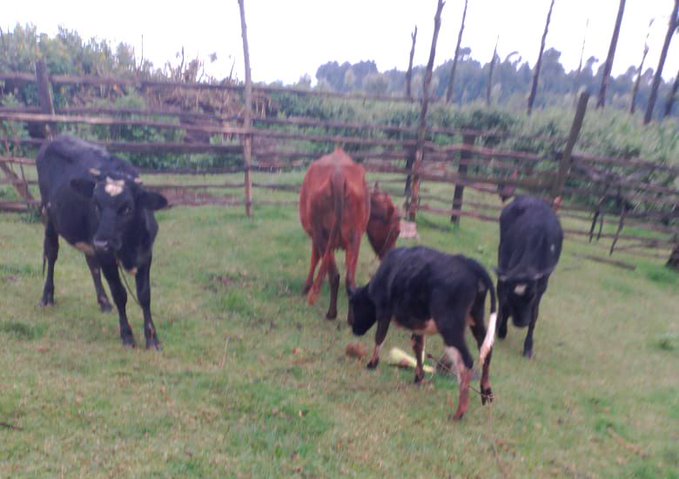MOLO, Nakuru County Police have recovered part of a herd of cattle stolen in the Kapsita area after a weekend raid, retrieving several head and launching an intensified manhunt for suspects still at large.
Officers from Turi Police Post, supported by the Anti-Stock Theft Unit (ASTU) detachment in Elburgon, moved in after the theft was reported on Sunday, July 20, 2025. Acting on tips from residents, the multi‑agency team followed hoof prints, canvassed grazing corridors, and searched improvised holding bomas concealed in nearby thickets. Several cows believed to be among the missing stock were traced, driven to Turi Police Post for positive identification, and later released to the rightful owner.
Recovered animals underwent basic veterinary checks to confirm condition after the short captivity. Officers recorded brand marks and ear‑tag details to update the area livestock register, a step local administrators say helps speed restitution and strengthen evidence needed for future prosecutions. Owners who have not formalized branding are being encouraged to do so through scheduled mobile livestock clinics.
Investigations are continuing to locate additional animals and apprehend those behind the raid. Security patrols remain active across the broader Kapsita–Turi belt to disrupt any attempt to move livestock into informal markets or across county boundaries. Authorities caution that rustling groups frequently split herds into smaller lots to evade detection, underscoring the need for swift community reporting.
Community cooperation was credited as decisive in the recovery. Residents are urged to keep sharing timely intelligence—flagging unusual night animal movements, freshly abandoned or hastily erected bomas, and quick‑cash offers for unbranded stock. Routine hot‑iron or freeze branding, up‑to‑date herd registers, shared night‑watch rosters, and simple lighting around kraals can all improve traceability and deter thieves.
Livestock are a critical store of wealth in Nakuru and across much of the Rift Valley. When animals disappear, families lose milk income, breeding genetics, and the collateral often used to secure school‑fee loans or farm inputs. Insurance coverage for small herds remains limited; producer groups are exploring pooled micro‑insurance schemes and digital trace platforms that pair GPS ear‑tags with community reporting to speed recovery and compensation.
Local security committees plan follow‑up public barazas to reinforce reporting channels and explore pasture‑sharing agreements that can reduce tension between neighboring communities. Anyone with information that could aid the ongoing operation is encouraged to promptly contact the nearest police station or community policing representative; anonymous tips are welcome day or night.

